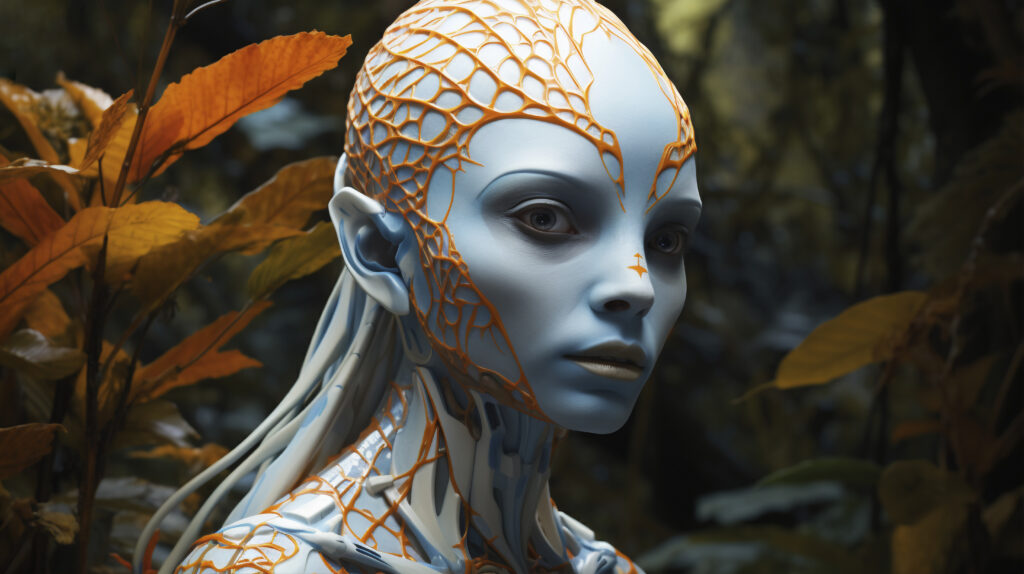Artificial Intelligence (AI) has become an essential part of our daily lives, transforming industries and enhancing human capabilities across various sectors. Here are some key areas where AI plays a significant role in the modern world:
1. Healthcare and Medicine
- Medical Diagnosis: AI-powered systems like IBM Watson and Google DeepMind assist doctors in diagnosing diseases with high accuracy.
- Drug Discovery: AI accelerates drug development by analyzing vast amounts of biomedical data.
- Personalized Treatment: AI helps tailor treatment plans based on individual patient data.
2. Business and Finance
- Fraud Detection: AI identifies suspicious financial activities in real time.
- Algorithmic Trading: AI-driven stock market predictions optimize investment strategies.
- Customer Service: Chatbots and virtual assistants handle customer queries efficiently.
3. Education and Learning
- Personalized Learning: AI-based platforms like Coursera and Duolingo adapt courses to student needs.
- Automated Grading: AI assists teachers by grading assignments and exams.
- Virtual Tutors: AI chatbots provide instant academic support.
4. Transportation and Smart Cities
- Autonomous Vehicles: Companies like Tesla and Waymo use AI for self-driving cars.
- Traffic Management: AI optimizes traffic flow and reduces congestion.
- Smart Infrastructure: AI-powered IoT devices enhance energy efficiency in smart cities.
5. Security and Surveillance
- Facial Recognition: AI improves identity verification and security screening.
- Cybersecurity: AI detects and prevents cyber threats in real time.
- Predictive Policing: AI analyzes crime patterns to enhance law enforcement strategies.
6. Entertainment and Media
- Content Recommendations: Platforms like Netflix and YouTube use AI to suggest personalized content.
- Deepfake Technology: AI creates hyper-realistic videos and animations.
- Music and Art Generation: AI tools like DALL·E and Jukebox create digital art and music.
7. Manufacturing and Robotics
- Automation: AI-driven robots enhance productivity and reduce labor costs.
- Quality Control: AI detects defects in products with high precision.
- Predictive Maintenance: AI predicts equipment failures before they occur.
8. Environment and Sustainability
- Climate Modeling: AI analyzes environmental data to predict climate change impacts.
- Renewable Energy Optimization: AI improves energy efficiency in solar and wind power systems.
- Wildlife Conservation: AI-powered drones monitor endangered species.
Conclusion
AI is revolutionizing industries by increasing efficiency, reducing costs, and enhancing human decision-making. As AI continues to evolve, its ethical implications and responsible use will be crucial in shaping a better future.
AI changes in the Entertainment and Media

AI is transforming the entertainment and media industry in multiple ways, from content creation to audience engagement and cost reduction. Here are some key areas where AI is making a significant impact:
1. AI-Driven Content Creation & Automation
AI tools assist in generating scripts, editing videos, designing graphics, and even creating music. This automation speeds up production while maintaining high-quality standards, making content creation more efficient and cost-effective .
2. Personalized User Experience
AI enhances user engagement by analyzing viewing habits and offering personalized content recommendations. Platforms like Netflix and Amazon Prime use AI to suggest movies and shows based on user preferences, boosting retention rates .
3. Targeted Advertising & Marketing
AI processes vast amounts of user data to deliver precise ad targeting. This improves marketing ROI by ensuring that advertisements reach the right audience at the right time .
4. AI in Gaming & Virtual Experiences
AI plays a critical role in gaming by improving NPC behavior, creating adaptive storylines, and enhancing graphics. Additionally, augmented reality (AR) and virtual reality (VR) are becoming more immersive with AI-powered features .
5. Cost Reduction & Efficiency
AI automates repetitive tasks like closed captioning, dubbing, and video editing, reducing labor costs. AI also optimizes energy consumption in production, cutting overall expenses .
6. AI-Generated Avatars & Virtual News Anchors
AI is being used to create digital news presenters, virtual influencers, and animated avatars that can interact with audiences in real-time, improving engagement .
7. Deepfake Detection & Content Authenticity
As deepfake technology evolves, AI is also being used to detect manipulated media and ensure content authenticity. This helps combat misinformation and protect media credibility .
The integration of AI in entertainment and media is only growing, with advancements in hyper-personalization, live broadcasting automation, and AI-powered news anchors shaping the future of digital content
How AVATARS work in AI

AI avatars are digital representations of individuals that use machine learning, natural language processing (NLP), and computer vision to mimic human-like interactions. They are widely used in virtual environments, customer support, entertainment, and education.
How AI Avatars Work
- Deep Learning & NLP – AI avatars use advanced language models to understand and respond to user inputs in real time.
- Computer Vision – Some avatars are designed to recognize facial expressions and gestures, making interactions more realistic.
- Customization & Adaptation – Users can personalize avatars based on appearance, language, and behavior to match their brand or personality.
- Integration with Other Technologies – AI avatars can be incorporated into VR, AR, and social platforms for enhanced engagement.
Key Applications
- Virtual Meetings & Customer Support: Businesses use AI avatars to provide automated yet human-like customer service.
- Entertainment & Media: AI avatars are widely used in gaming, movies, and virtual influencers.
- Education & Training: AI tutors help personalize learning experiences.
- E-Commerce & Marketing: Virtual assistants enhance online shopping experiences.
However, challenges such as data privacy, ethical concerns, and the risk of misuse (e.g., deepfakes) remain key issues that need to be addressed. As technology advances, AI avatars are expected to become more realistic and widely integrated into daily digital interactions

